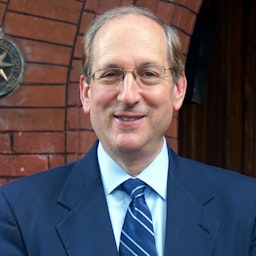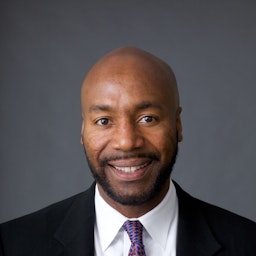
Webinar
Affirmative Action in College Admissions
April 13, 2022
–
Recently, the U.S. Supreme Court announced that it will hear challenges to the Harvard and UNC-Chapel Hill’s admissions processes, which include limited consideration of race and ethnicity as part of their holistic review of applicants for undergraduate admission. While the court has allowed for the use of holistic admissions as a means of advancing diversity for the past four decades, the composition of the court is quite different than it was during the last challenge, heard in University of Texas at Austin v. Fisher. And the current court has failed to demonstrate a solid commitment to stare decisis, respecting past precedent. The use of race in admission decisions will be at the forefront of the higher education landscape over the next year.
Session 3 of the Series: Moral Distress in Higher Education Leadership
In this virtual town hall, Professor Paul Butler from Georgetown Law will join Frederick M. Lawrence, Secretary and CEO of The Phi Beta Kappa Society and Distinguished Lecturer in Law at Georgetown, in a conversation about affirmative action, free speech on campus, and the impact of the Movement for Black Lives on universities. The two law professors will share their reflections on the potential impact of ending affirmative action in college admissions and will share advice for campus leaders who seek to prepare for a Supreme Court ruling expected to come next year when the Court takes up the cases of Harvard and the University of North Carolina.
The view-on-demand recording is complimentary for Presidents' Trust members. All others can purchase the recording for $50.
Moderator

Frederick Lawrence
Secretary and CEO, Phi Beta Kappa Society; Member, AAC&U Board of Directors
Presenter

Paul Butler
Albert Brick Professor in Law, Georgetown University Law Center
Series Overview: Moral Distress in Higher Education Leadership
The AAC&U Presidents’ Trust invites you to a series of virtual town hall meetings focused on issues causing moral distress for today’s college and university presidents. Moral distress, often discussed in the context of healthcare, occurs when one knows the ethically correct action to take but feels powerless to take that action. Leaders in higher education face moral distress when there is conflict between the values of the individual, the institution, and/or the community or legal system governing that community.
Presented by the AAC&U Presidents’ Trust, this series is intended for higher education leaders and partners, and complimentary for members of AAC&U’s Presidents’ Trust and their board chairs. Higher education boards can be an important source of support for leaders and campuses in times of moral distress, and an impactful voice and force for liberal education.